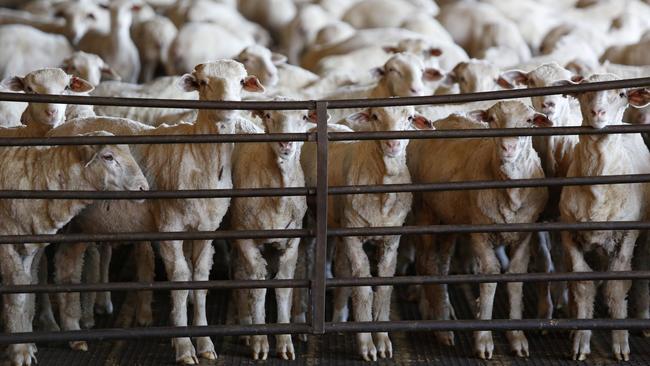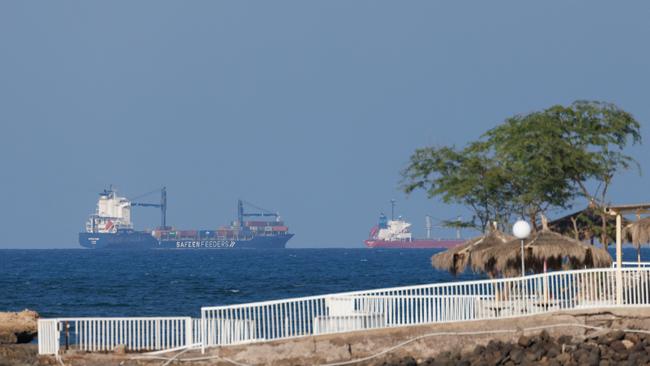Houthi attacks in the Red Sea leave Australian live export ship in limbo
An Australian live export ship bound for the Middle East is turned back because of Houthi rebel attacks in the Red Sea. Now 15,000 sheep are stuck off the WA coast.

Sheep stranded on a live export ship off the West Australian coast over concerns about Houthi rebel attacks in the Red Sea could begin unloading as early as Thursday.
Some 15,000 sheep remained onboard the carrier on Wednesday as the Australian government and the exporter worked to end a stalemate ongoing since the ship anchored 10km off Perth on Monday.
The exporter was awaiting approval from the government to unload some sheep at the port of Fremantle and move them to a quarantine facility.
Carrying a Marshall Islands flag, the MV Bahija left Fremantle on January 5 and was en route to the Middle East when the Australian Department of Agriculture Fisheries and Forestry ordered its return to Australia after it diverted its course because of Houthi rebel attacks in the Red Sea.
The Israel-based exporter, which is not a member of the Australian Livestock Exporters Council, on Wednesday planned to restock with fresh fodder and send the ship to the Middle East via the southern cape of Africa and into the Mediterranean Sea.
The Department of Agriculture wanted an independent vet to inspect the health of the sheep before permitting the movement.
Heatwave conditions in Perth, which was forecast to reach 39C on Wednesday, increased concerns on the animals’ welfare.
“All reports to date indicate there are no signs of any significant health or welfare concerns with the livestock on board,” the department said in a statement.

It was assessing an application to resume the export via the southern cape of Africa and wanted to ensure the move would be supported by the intended market in the Middle East.
“Ultimately, all plans are commercial decisions for the exporter that must be assessed by the department as the regulator,” it said.
“These are complex decisions that must balance Australian biosecurity, export legislation, animal welfare considerations and the requirements of our international trading partners.”
WA Premier Roger Cook said some of the sheep could be unloaded from the livestock carrier as early as Thursday.
The RSPCA and other groups opposed to live exports have called for the sheep to be unloaded immediately and processed in Australia.
“These animals have already spent nearly a month on rolling seas in cramped conditions, standing in their own waste – there really is no other humane choice but to get them off the ship now,” RSPCA WA chief executive Ben Cave said. “To send them back out to sea on an even longer voyage would be cruel and barbaric.”
The Australian Livestock Exporters Council said the industry was not at fault for the situation and called for a quick resolution.
“It’s in the interest of all parties that a decision is made quickly so that there is clarity about what is happening,” ALEC chief executive Mark Harvey-Sutton said.
“It is incredibly disappointing that those who are opposed to the trade are seeking to capitalise and politicise an issue that basically has its roots in a vessel being unable to exercise its freedom of navigation in the Red Sea.”
It comes as the Australian live sheep export industry has been arguing against the Albanese government’s promised ban of the trade, which is primarily based in WA. The government is yet to announce a date for a proposed “phase-out” but said it would not be in the current term.








To join the conversation, please log in. Don't have an account? Register
Join the conversation, you are commenting as Logout